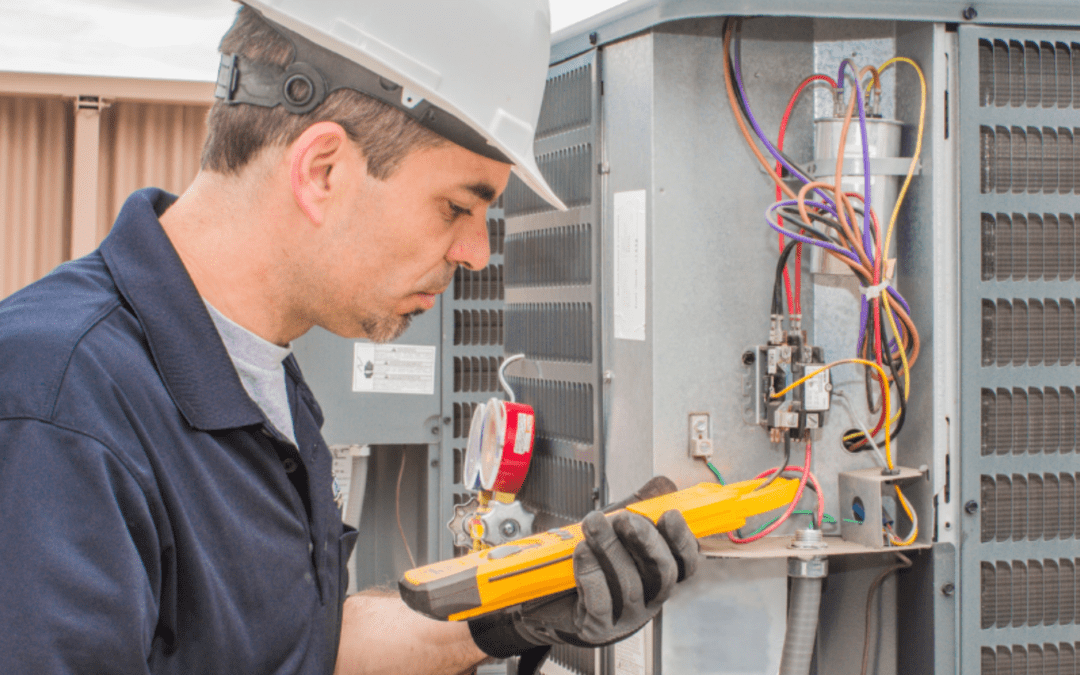INTRODUCTION:
The most common health risks HVAC technicians are exposed to are respiratory related. Many homes contain HVAC systems with dirty air filters that act as petri dishes for mold, bacteria, and fungus. A faulty pilot light and heat exchangers leaking on the furnace can lead to carbon monoxide poisoning.
HAZARDS IN HVAC:
The main hazards of HVAC work include: lifting, confined space entry (working inside ductwork), electrocution from electricity and wiring and using ladders and scaffolding. Workers are often required to work at height (on roofs, for instance) and have to manage fall-arrest systems.
To prevent HVAC accidents and avoid risks , HVAC technicians should take the following potential hazards into account and put the suggested safety precaution in place
- Electrical HVAC safety hazards
- Chemical exposure
- Inadequate equipment inventory
- Respiratory hazards
- Ladder liability
- Dangerous driving
- Unprofessional conduct
- Extreme weather
- Technician and client health
HVAC SAFETY HAZARDS TO AVOID
Electrical HVAC Safety Hazards
HVAC work requires handling electrical wiring. When on a job, techs must de-energize all equipment before performing routine inspections, tests, repairs, and other servicing procedures.
Avoid accidents with these electrical HVAC safety tips:
- Turn off power to the corresponding circuit in the breaker panel.
- Use proper lockout and tag procedures to ensure no one tries to turn on the power while you are working.
- Before performing the work, test the circuit with a meter that is properly rated for the type of circuit you’re testing to determine if it’s still energized.
Chemical Exposure

One of the main HVAC accidents the industry sees is exposure to dangerous chemicals and contaminants.
Technicians work with a variety of chemicals that can cause serious burns, such as refrigerants, cleaning liquids, solvents, and gases. Even though a lot of refrigerants are classified as safe by the manufacturers, the chemicals’ toxicity is subject to increase when exposed to heat—ultimately reducing indoor air quality and posing a health hazard to technicians.
Proper HVAC safety training is crucial before working with these chemicals.
When handling hazardous materials, exercise caution and always gear up with reliable personal protective equipment (PPE), including safety glasses, protective footwear, and HVAC work gloves. Follow all safety precautions.
Pressurised gas cylinders—commonly found on the back of a technician’s work truck—can become a fire hazard or even explosive when exposed to extreme summer temperatures. One bump on the road can send them shooting off like a rocket.
Inadequate equipment Inventory
Having the proper HVAC tools is crucial. Practice a routine of prevention and awareness.
Before departing for your scheduled route, make sure the tools in your vehicle are ready for work. This way, you can arrive at the homeowner’s residence confident you have the properly functioning tools needed to complete the job. Additionally, determining which tools you’ll be using for your next job makes it easy to hit the ground running upon arrival. It’s not just about staying organized with your equipment inventory; it actually prevents you from improvising when you’re in the midst of a job. The best tactic for safety is prevention and proper HVAC servicing procedures.
Respiratory HVAC System Hazards
The most common health risks HVAC technicians are exposed to are respiratory related. Many homes contain HVAC systems with dirty air filters that act as petri dishes for mold, bacteria, and fungus. A faulty pilot light and heat exchangers leaking on the furnace can lead to carbon monoxide poisoning.
Wear an industrial-grade face mask to prevent inhaling these lingering dangers in close proximity and for extended periods. Sometimes, the job requires a higher-grade mask, such as a cartridge-style mask or even a self-contained breathing mask—especially if the job is in a contaminated and confined space. Adequate airflow is paramount in these situations, and work should be carried out in an open space, whenever possible.
Ladder Liability
According to a CDC report “each year in the U.S., more than 100 people die and thousands more are injured from ladder-related falls.” By taking a few extra steps to adequately secure your ladder, you prevent one of the most common instances of fatalities and injuries on job sites.
Dangerous Driving
All of your tools may be pristine and properly stored. You may be fully outfitted with all of the PPE you can manage to put on. You can climb a ladder safely and follow every precautionary step when dealing with electrical or chemical hazards. But none of that matters if you never make it to the job.
Unprofessional Conduct
It’s an act of trust when a homeowner invites a technician into their home, and nothing screams unprofessional like an untrained technician. An untrained technician easily disrupts a homeowner’s sense of security. As a business owner, make sure all of your technicians receive HVAC safety training to recognize hazards and establish proper protocols to ensure the safety of both technicians and customers.
Extreme Weather Condition
HVAC technicians frequently work outside in extreme heat or cold. This leaves them at risk for fatigue, dehydration, heat stroke, hypothermia, and frostbite. As an HVAC tech, know your limits, wear the proper clothing, hydrate, and take breaks as needed to avoid these conditions. If techs don’t take care of themselves and their co-workers, they can’t serve customers properly. A technician’s health is worth the time.
Brunswick Engineering has been offering Mechanical, Electrical, Plumbing & Fire Protection Engineering design services to both the public & private sectors. Registered Professional Engineers in the state of NJ, NY & PA, as well LEED Accredited Professionals, Design Engineers, and CAD Draftsmen/Technicians.

